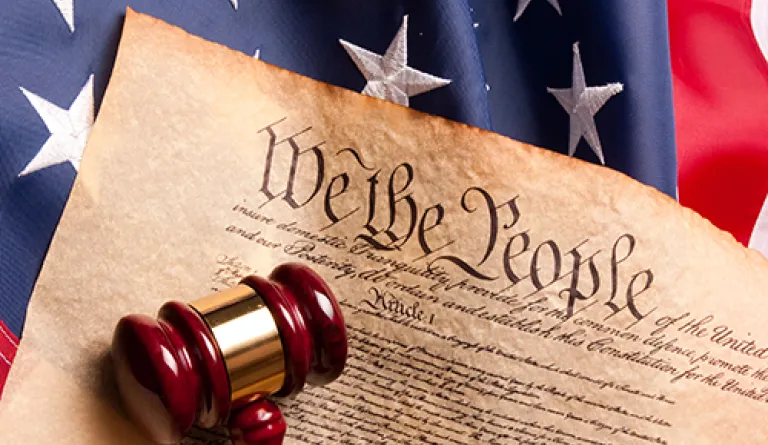Our Founding Fathers' Vision: An Enduring Rule of Law

Constitution Day is observed Friday, September 16, 2016. In celebration of the ratification of the U.S. Constitution, IAALS is joining with others around the country to share perspectives on the history, impact, and promise of the Constitution. This blog is part a series of Constitution Day posts, authored by members of the O'Connor Advisory Committee to our Quality Judges Initiative, which are collected here. Join the conversation in the comments below, or on Twitter with #ConstitutionDay.
More than two hundred years ago, our Founders created and signed the Constitution of the United States. This codified, written constitution established that ours would be a nation governed by the rule of law.
The concepts embodied in the phrase “rule of law” are both simple and complex. Its simplicity derives from the fact that the underlying notion is clear: all persons, regardless of race, ethnicity, gender, religion, sexual orientation, economic or social status, or other group or individual characteristic, are equal in the eyes of the law. The concept, however, also requires that a complex web of laws and governmental actions come together to assure the protection of the rule of law for all.
The judicial branch of government is responsible for assuring that all persons, from governmental actors to private individuals, receive the full benefits of the rule of law. To guarantee that the courts apply the law fairly and equally, we must assure that the judges presiding over disputes are independent, impartial, and well-qualified. We also must guarantee that our courts are available to all for the fair resolution of their disputes. I am concerned about factors that impact our ability to fulfill both those essential promises.
My first concern involves attempts by political and special interest groups to politicize the judicial branch and transform our judges to nothing more than “politicians in robes.” The third branch of government was not conceived as being, and must not be, a political branch of government. Our judges must remain free to make their rulings based on facts and applicable law, and never to further one partisan or special interest point of view. The citizen who enters our courts to resolve a dispute with a wealthy business owner, with a person of political power, or with a member of a majority group must know that she will be on equal footing under the law. But recently we have seen multiple attacks designed to undermine the impartial nature of our courts, ranging from legislative changes to the size of appellate courts intended to allow a Governor to stack the court with political judges; to legislative efforts to deprive the courts of needed funds unless and until the judges change their prior opinions; to efforts of outside, special interest groups to pour money into state court elections to elect judges sympathetic to a particular point of view. All voters should hold accountable those politicians who seek to change our judges from impartial to beholden or to transform our courts into another political arm of the government.
I also am concerned about our continuing ability to keep our courts accessible to those who need the courts to provide a fair, impartial, and speedy resolution of disputes related to the most important issues of their lives. Most cases filed in our courts do not involve large sums of money or disputed social issues. Most involve family law issues, including child support and custody issues, or landlord/tenant disputes or small contract disputes or personal injury issues. If our courts do not receive funding sufficient to be truly accessible, then the promise of a country governed by the rule of law remains only a promise rather than a reality for many.
Our Founders envisioned a judicial system separate from the political branches of government, a system designed to fulfill the promise that this country would provide a government based on the rule of law. On this Constitution Day, as on every day, we all are responsible for ensuring the continued viability of that vision.
